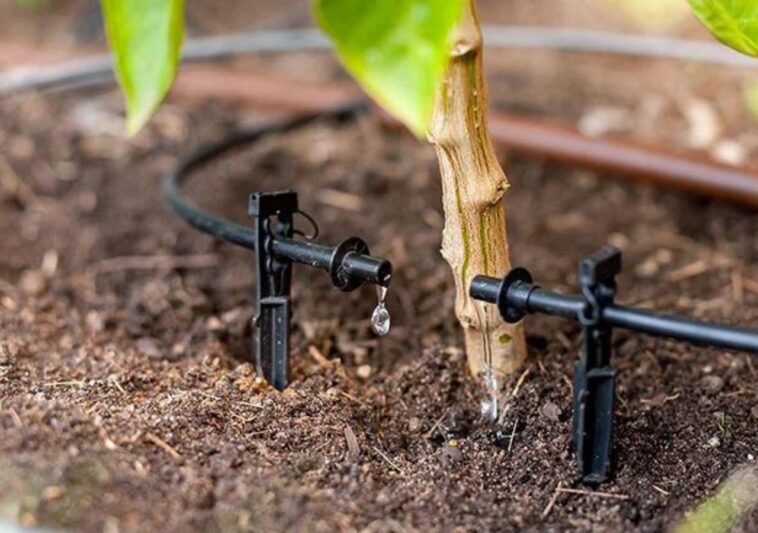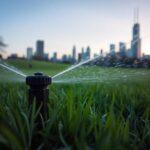Water conservation is becoming increasingly important, especially in regions like Melbourne, where rainfall can be unpredictable. Traditional watering methods, such as sprinklers and hose irrigation, often lead to excessive water waste through evaporation, runoff, and inefficient distribution. A smarter solution for maintaining a lush garden or a productive farm is drip irrigation Melbourne. This method delivers water directly to the plant roots, ensuring they get the right amount of hydration without unnecessary waste.
Whether you are a homeowner, a landscaper, or a commercial grower, investing in a drip irrigation system can save water, reduce costs, and promote healthier plant growth. Let’s explore the advantages, components, and maintenance of a drip irrigation system to understand why it is the best choice for Melbourne’s climate.
Why Choose Drip Irrigation Over Traditional Watering Methods?
Drip irrigation differs significantly from traditional methods such as sprinklers or hand watering. Instead of spraying large amounts of water over a wide area, it releases water slowly and precisely where it’s needed most—the plant’s root zone. Here’s why this matters:
1. Water Efficiency and Conservation
One of the biggest benefits of drip irrigation is its ability to conserve water. Traditional watering methods often waste water due to evaporation and runoff, especially in hot and windy conditions. Drip irrigation minimizes these issues by delivering water directly to the soil at a slow, steady rate. This ensures better absorption, reducing the overall amount of water needed to keep plants healthy.
2. Healthier and Stronger Plants
Inconsistent watering can lead to plant stress, stunted growth, and disease. Drip irrigation maintains steady soil moisture, preventing overwatering and underwatering. Since the water is applied directly to the root zone, plants can absorb nutrients more efficiently, leading to faster and healthier growth.
3. Weed and Disease Control
Weeds thrive when they receive excess water, particularly in areas where sprinklers distribute water unevenly. Drip irrigation minimizes moisture in non-essential areas, which reduces weed growth. Additionally, keeping plant leaves dry helps prevent fungal diseases, mold, and mildew, which often result from overhead watering.
4. Cost-Effective and Low Maintenance
A well-designed drip irrigation system can significantly reduce water bills and maintenance costs. By using less water and minimizing plant diseases, homeowners and businesses save money on both utilities and landscaping upkeep. Although the initial setup cost may be higher than traditional watering methods, the long-term savings and efficiency make it a worthwhile investment.
Components of a Drip Irrigation System
A properly installed drip irrigation system consists of several key components that work together to deliver water efficiently:
-
Mainline Tubing – The primary pipeline that carries water from the source to different areas of the garden or farm.
-
Emitters (Drippers) – Small devices that regulate water flow and distribute it to individual plants. These come in different flow rates depending on the plant’s needs.
-
Filters – Essential for preventing debris from clogging the system, ensuring consistent water flow.
-
Pressure Regulators – Help maintain uniform water pressure, which is crucial for even distribution across the irrigation system.
-
Timers and Controllers – Automate watering schedules, ensuring plants receive the right amount of water at the right time without manual intervention.
Installation and Setup of Drip Irrigation
1. Planning Your System
Before installation, assess your landscape to determine the best placement for tubing and emitters. Consider factors such as soil type, plant spacing, and the water source location. A professional can help design an efficient system tailored to your needs.
2. Installing the Components
-
Lay out the mainline tubing along the desired areas.
-
Attach emitters near the base of each plant, ensuring they are positioned for optimal watering.
-
Connect filters and pressure regulators to prevent clogging and ensure steady water flow.
-
Set up a timer to automate watering schedules and optimize efficiency.
3. Routine Maintenance for Longevity
Regular maintenance is key to keeping your drip irrigation system running smoothly. Here are some essential upkeep tasks:
-
Check emitters for clogs and clean them as needed.
-
Inspect the tubing for leaks or damage.
-
Flush the system periodically to remove debris and mineral buildup.
-
Adjust watering schedules based on seasonal changes to prevent overwatering or underwatering.
Ideal Uses for Drip Irrigation
Home Gardens and Landscapes
For residential use, drip irrigation is perfect for flower beds, vegetable gardens, shrubs, and trees. It allows homeowners to water efficiently without worrying about wasted water or high utility bills.
Commercial and Agricultural Applications
Farmers and commercial landscapers use drip irrigation to improve crop yields while conserving resources. Whether for vineyards, orchards, or greenhouse operations, this method ensures consistent hydration, leading to better productivity and reduced costs.
Public Parks and Green Spaces
Drip irrigation is widely used in public parks, sports fields, and urban landscapes. It helps maintain green spaces without excessive water waste, aligning with sustainability goals.
Why Melbourne Homeowners and Businesses Should Consider Drip Irrigation
Melbourne’s climate can be unpredictable, with dry spells affecting garden health. By implementing drip irrigation Melbourne, residents and business owners can maintain beautiful, thriving landscapes while using water responsibly. The efficiency of this system ensures plants receive the hydration they need, even during water restrictions or drought conditions.
Final Thoughts
Switching to a drip irrigation system is a practical and eco-friendly choice for anyone looking to conserve water and improve plant health. Whether you are a homeowner, a landscaper, or a farmer, this method ensures precise watering with minimal waste. If you need professional installation or maintenance, MVW Services can provide expert assistance in designing and maintaining an efficient irrigation system tailored to your needs.
This post was created with our nice and easy submission form. Create your post!



Comments
0 comments